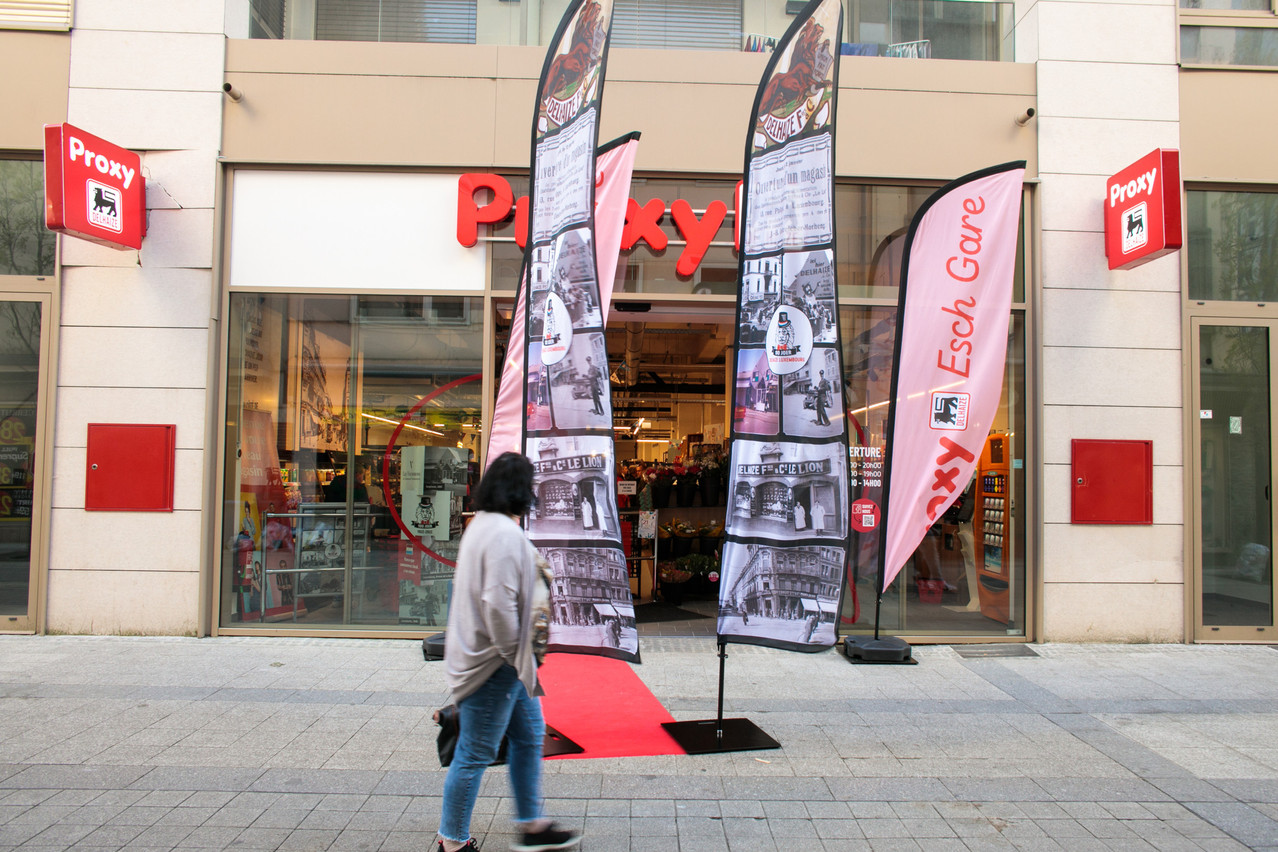With some 800 points of sale in Belgium, Delhaize aims to delegate all their management to independents and therefore announced on 7 March the franchising of its 128 integrated Belgian establishments.
In Luxembourg, no supermarkets are concerned, said the brand, which operates 12 integrated sales outlets out of a total of 58 shops.
“The situation of our own supermarkets is not the same in Luxembourg as in Belgium,” , the company’s country manager in the grand duchy, cautiously notes. “All sectors taken together, the Luxembourg market remains dynamic due to its growing population and economy, supported by a positive border impact. The competitive landscape is also different.”
The Belgian market agitated by Dutch brands
Number two on the Luxembourg market in terms of the number of stores, just behind Cactus, Delhaize enjoys a solid network in Luxembourg based on a . In Belgium, Delhaize is also one of the country’s leading retailers, alongside Colruyt (also present in the grand duchy with six locations).
But in recent years, the Dutch brands Albert Heijn (a member of the Ahold Delhaize holding) and Jumbo have increased their presence in Flanders. What makes them special? A particularly aggressive price strategy that has reshuffled the deck in a few years, with Albert Heijn now trailing Colruyt as the cheapest retailer for customers.

In Luxembourg, Delhaize is competing with Cactus, the historic brand in the market, which has a network of 65 food outlets. The most recent one opened in February in Roodt/Syre (pictured). Photo: Matic Zorman/Maison Moderne
In Luxembourg, price sensitivity is a different story since the communication of the market leaders is rather focused on quality while the discounters are clearly positioned on the amount of the receipt.
Fewer employees among the franchisees
Delhaize Luxembourg has 46 franchised shops, more than half of which are in the Shop’n Go format operated in partnership with the oil company Q8. The Delhaize Proxy model has 23 outlets, also largely franchised.
Of the 1,200 employees employed by Delhaize in Luxembourg, 735 work in integrated sales outlets, the rest in franchised outlets. The latter therefore have more sales outlets (46 compared to 12) but fewer employees, as the format of the sales outlets is generally smaller than that of the integrated supermarkets.
Both modes of operation (integrated and franchised) operating in Luxembourg are growing and gaining market share.
“Both modes of operation (integrated and franchised) operating in Luxembourg are growing and gaining market share,” says Gonnet. However, the parent company of Delhaize, Ahold Delhaize, does not communicate detailed figures for the activity in the grand duchy. The holding company reported sales up 15.1% to nearly €87bn last year, 63% of which came from the US.
Franchising, a long-standing business
In Belgium, trade unions are concerned about a deterioration in the working conditions of the employees of the lion brand. They point to the Sunday openings in force for franchisees, but not for the integrated stores.
Present in Luxembourg for more than 100 years, Delhaize has historically relied on franchisees to ensure its presence on this market. “The first integrated supermarket in Luxembourg dates from 2004 and is located in Bertrange. Before that, the shops were all franchises,” says Cédric Gonnet.
To become a franchisee, an entrepreneur pays an entry fee and agrees to pay a percentage of sales to the franchisor. Delhaize Luxembourg operates under three distinct scenarios: the operation of an existing retail space in the hands of the franchisee, the takeover of a business or the signing of a lease by Delhaize of a retail space offered for operation to a candidate franchisor.
Read also
“The shop operating model in the grand duchy of Luxembourg is more favourable to the sustainability of the own management model than in Belgium,” adds the official.
The central secretary of the OGBL commerece trade union, David Angel, says he supports the action of his Belgian colleagues and is vigilant regarding Luxembourg. “We are aware that there is a difference between Belgium and Luxembourg, but at the same time the Luxembourg activity of the shops is closely linked to Belgium. The Luxembourg management of Delhaize told us that there was nothing to worry about but did not give us any guarantees that total franchising would be avoided. In the jungle of the retail industry, the lion is far from having a monopoly on caution.”
This story was first published in French on . It has been translated and edited for Delano.

